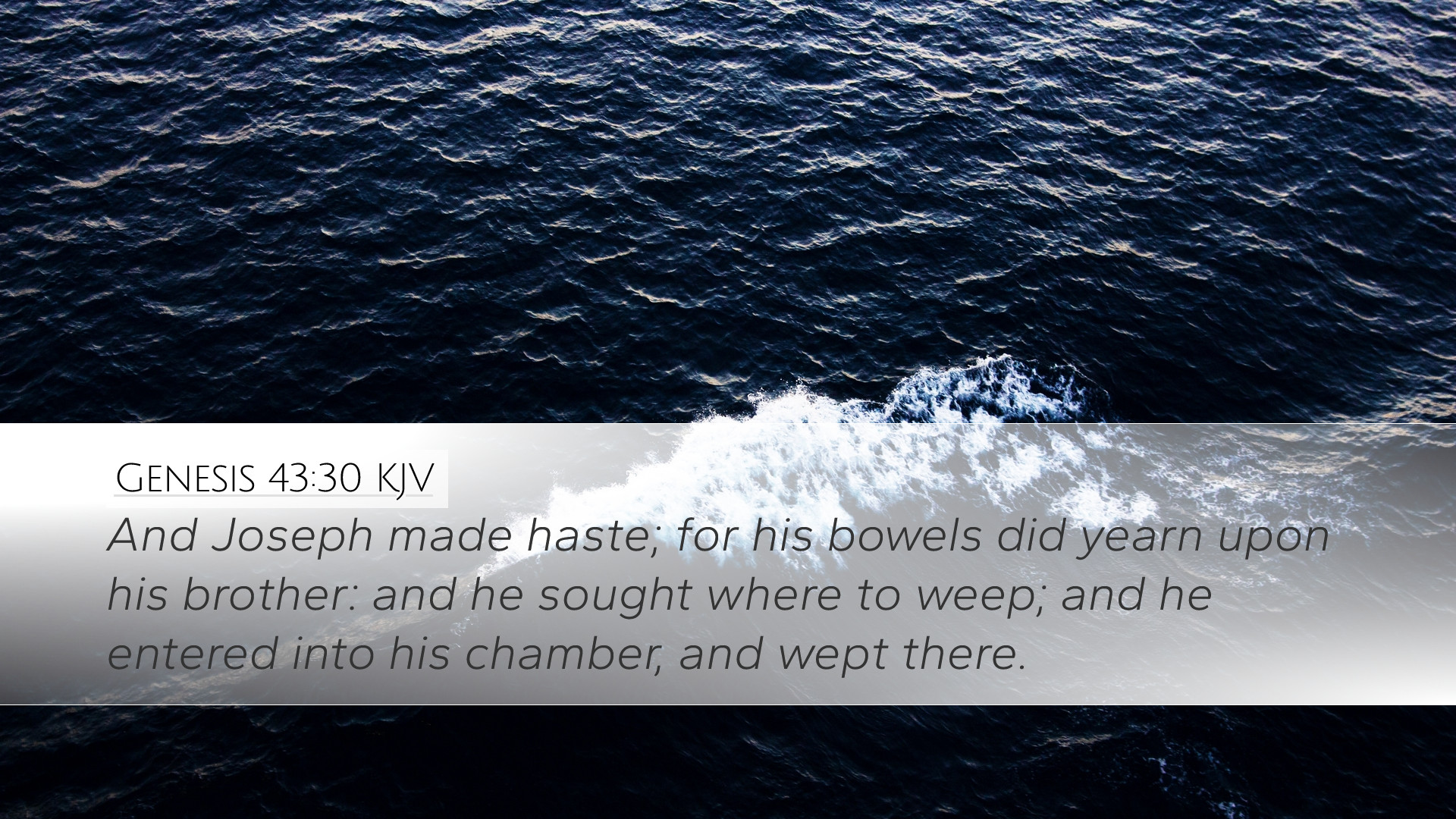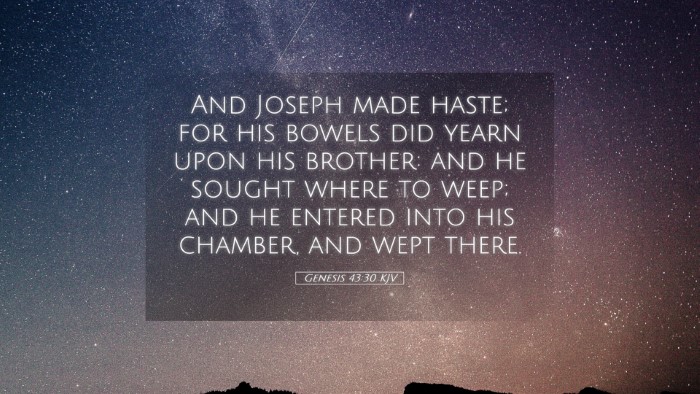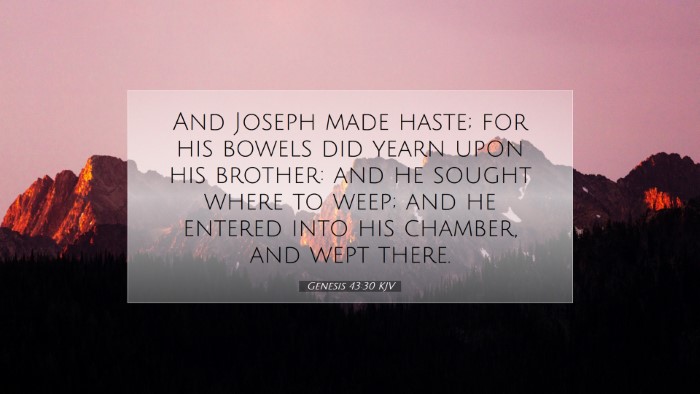Commentary on Genesis 43:30
Genesis 43:30 records a solemn moment when Joseph, now a powerful figure in Egypt, reveals the deep emotional conflict regarding his brothers. The verse reads:
"And Joseph made haste; for his bowels did yearn upon his brother: and he sought where to weep; and he entered into his chamber, and wept there."
Contextual Background
This passage occurs during a pivotal moment in the unfolding narrative of Joseph's life, emphasizing themes of reconciliation and the complexity of human emotion. The historical context involves Joseph's rise to power and the reunion with his brothers, who had previously betrayed him. This moment encapsulates the tension between past grievances and the hope for restoration, inviting readers to reflect on the nature of forgiveness.
Emotional Depth and Joseph's Reaction
Matthew Henry's Commentary emphasizes the profound emotional turmoil Joseph experiences upon seeing his brother Benjamin:
- He feels an intense rush of compassion and affection, indicating the depth of familial ties.
- This reaction reveals Joseph’s humanity, displaying the real pain he has endured as a result of his brothers' actions.
- Henry notes that Joseph's "bowels did yearn," a phrase indicating deep-seated emotion, often associated with compassion and mercy in biblical literature.
Albert Barnes further explains the significance of Joseph’s reaction:
- He highlights that Joseph's decision to "make haste" to weep signifies an urgency driven by overwhelming emotion.
- Barnes notes how “the heart often feels before it can express itself,” suggesting the conflict between emotion and reason that Joseph must navigate.
Thematic Insights
Several themes emerge from this passage that resonate with the broader narrative structure of Genesis:
- Forgiveness and Reconciliation: The anguish Joseph feels suggests a longing for reconciliation, as he grapples with the tension of both love and betrayal.
- Human Vulnerability: Joseph's ability to express emotion reveals the depth of human experience, highlighting that powerful figures are not devoid of feelings.
The Setting of Joseph's Weeping
Adam Clarke provides insightful commentary on the act of Joseph withdrawing to weep:
- Clarke points out that privacy in grief is vital, suggesting that Joseph seeks a space where he can process profound emotions without the scrutiny of the others.
- This act demonstrates his sensitivity; Joseph is mindful of his brothers’ perception while also giving himself the opportunity to heal personally.
The Importance of Emotion in Leadership
This verse illustrates a critical aspect of leadership—the capacity for empathy. Joseph's emotional response serves as a teaching point for contemporary leaders:
- Empathy: Recognizing and valuing the emotions of others can enhance relationships, fostering an environment of trust.
- Self-Regulation: Leaders are often faced with complex situations; understanding the need for emotional management is crucial for effective leadership.
Concluding Reflections
In conclusion, Genesis 43:30 serves as a rich narrative moment packed with theological and emotional significance. It invites pastors, students, theologians, and Bible scholars to consider the depth of Joseph's experiences and the broader implications of reconciliation and emotion in our spiritual journeys.
Through the lenses provided by public domain commentaries, we see Joseph not only as a figure of power but also as a model for emotional depth and vulnerability, inviting all believers to embrace the fullness of their emotional lives in the light of God's grace.


